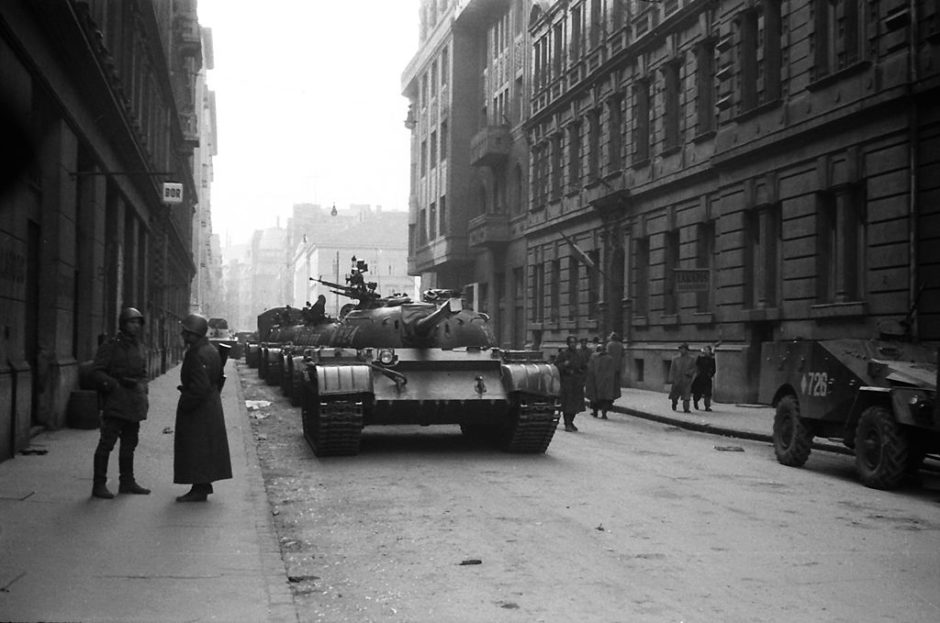Sixty years ago last month, Soviet tanks rolled into Hungary and crushed a popular anti-communist revolution. To mark the uprising, the Hungarian consulate in Toronto is presenting the Freedom First — Hungary 1956 Film Festival at TIFF’s Bell Lightbox from November 17-20. Admission is free.
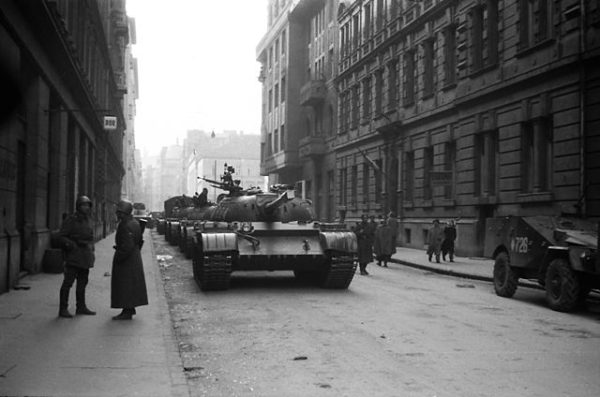
One of the movies on tap, Istvan Szabo’s Sunshine (1999), starring British actor Ralph Fiennes, will be screened on Friday, November 18 at 5 p.m. It will be followed by a Q & A with Robert Lantos, its Hungarian-born, Toronto-based co-producer.
A nearly three-hour epic focusing on three generations of Hungarian Jews from the late 19th century onward, it’s one of the most ambitious Canadian movies ever made. A finely-wrought film, Sunshine is about identity, social acceptance, antisemitism and oppression.
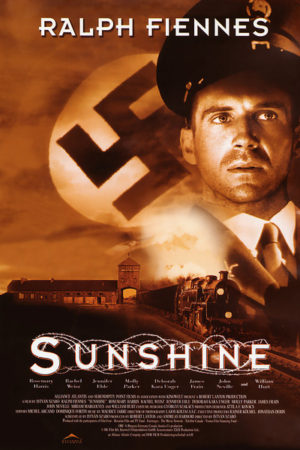
Fiennes plays three different characters from the same family: Ignatz Sonnenschein, the son of a successful distiller who becomes a lawyer and a judge during the twilight of the Austro-Hungarian Empire; Adam Sors, a fencing champion who converts to Christianity to assure his upward mobility, and Ivan Sors, a policeman who endures the communist era.
The patriarch in the film, Emanuel Sonnenschein (David de Keyser), is the scion of tavern keepers who turns a herbal tonic, Taste of Sunshine, into a resounding commercial success. His children have no interest in joining the family business. Ignatz goes into law, while Gustave studies medicine.
At first, Sunshine dwells on the romance between Ignatz and Valerie (Jennifer Ehle), his first cousin. His parents frown on their love affair and do their best to scuttle it, but the young lovers defy their wishes and get married.
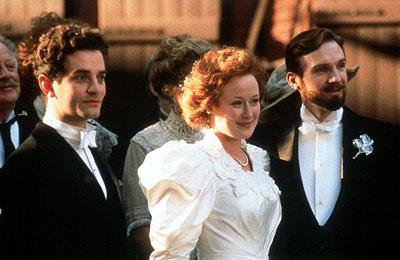
Meanwhile, Ignatz, a conformist, is offered a promotion on one condition. If he abandons his Jewish surname and Magyarizes it to Sors, he’ll be appointed a judge. Eager to succeed, Ignatz accepts the offer with alacrity.
These scenes play out in Budapest, an atmospheric city with beautiful cafes.
As the Sors’ usher in the 20th century, Ignatz predicts it will be one of peace and tolerance. Little does he know what lies ahead for Hungary and its Jewish population.
Gustave, Ignatz’s socialist brother, disabuses him of his idealistic notion that all men are created equal. As a Jew, he will never be fully accepted by gentiles, he claims.
With the collapse of the monarchy in 1918, Hungary achieves independence. In the meantime, Ignatz’s marriage to Valerie crumbles.
The next phase of the movie unfolds as Adam — a lawyer, amateur fencer and reserve army officer — leaves Judaism to achieve full acceptance. Having been told he can’t join the snotty Officers Club unless he converts, he embraces Roman Catholicism and adopts condescending antisemitic attitudes. The woman (Molly Parker) he will marry in a church ceremony is a Jewish convert to Christianity as well. Their conversions are indicative of the degree to which some Jews tried to assimilate into Hungarian society completely.
Rachel Weisz portrays Greta, the feisty wife of Adam’s brother, Istvan. An amorous women, she has her heart set on seducing Adam, the love of her life.
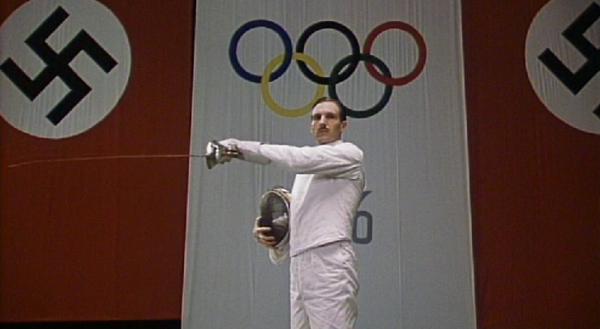
The film reaches a crescendo at the 1936 summer Olympic Games in Berlin. Adam, a member of the Hungarian fencing team, makes it to the gold medal round of the competition.
In quick succession, the pro-German Hungarian government enacts antisemitic laws and Germany invades Hungary, reducing Jews to a marginalized and vulnerable minority. Adam and his son are sent to a Hungarian labor camp, where they’re mistreated and cursed as “stinking” Jews. The film underscores the point that Hungarians played a decisive role in the persecution and murder of Hungary’s Jewish citizens.
In postwar Hungary, Ivan, Adam’s surviving son, becomes a policeman and joins in the hunt for wartime fascists. By now, Hungary is in the full throes of Stalin worship. The specter of a “Zionist conspiracy” in Hungary gives Ivan pause, prompting him to conclude that the communist regime has turned “ideals into crimes.”
With the 1956 uprising having erupted, Ivan chooses sides, joining the freedom fighters resisting the Soviet Union’s invasion. It lands him in prison but frees him of illusions and brings him much closer to his Jewish origins.
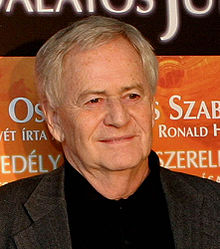
Sunshine, with sumptuous sets and excellent production values, is likely to hold viewers in thrall. Fiennes delivers a sterling performance, and his co-stars acquit themselves in stellar fashion too.
Sunshine is a serious-minded yet entertaining film by one of Hungary’s greatest directors.
***
